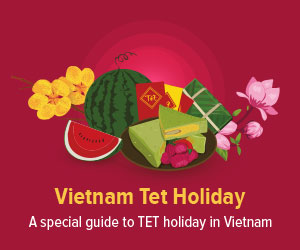Watermelon
Watermelon remains a favored fruit in Vietnam, especially during the summer months, renowned for its refreshing qualities and broad family appeal.
The Legend Of Mai An Tiem and Watermelon
Those familiar with Vietnamese folklore are likely aware of the legend of Mai An Tiem, the individual credited with planting the first delicious watermelon seed.
During the era of the 18th Hung Vuong dynasty, there was a young man named Mai An Tiem. He was quick-witted, resourceful, and hardworking, earning the favor of the King and marrying the King’s adopted daughter. Despite this favor, he continued to work industriously, refusing to rely solely on the King’s fortune. Unfortunately, his good intentions led to misunderstanding and he was exiled to a deserted island. Undeterred, he believed that hard work would ensure his survival.
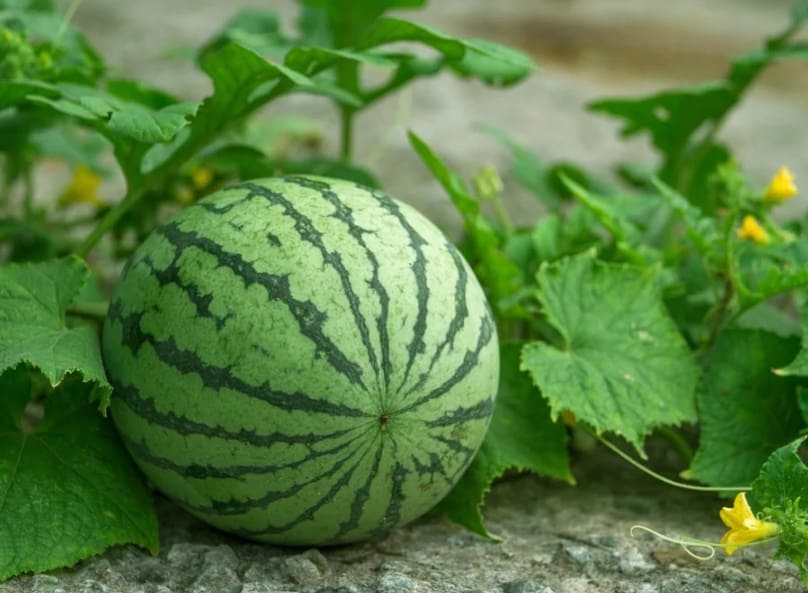 Photo: khoeplus.com.vn
Photo: khoeplus.com.vn
One day, Mai An Tiem noticed a flock of birds from the West pecking at something on the shore. Upon closer inspection, he discovered they were eating black seeds. He thought, “If birds can eat this seed, so can people!” Acting on this idea, he gathered the seeds, planted them, and diligently cared for the garden. When the harvest came, he and his family were astonished by the juicy, sweet fruit they had grown—we now know this fruit as watermelon.
Varieties
Vietnam boasts a variety of watermelon types, some indigenous and others introduced from different regions.
Yellow Rind Watermelon: This variety features a yellow shell, contrasting with the more typical green rind. Its flesh remains a vibrant red, offering a delightful sweetness.
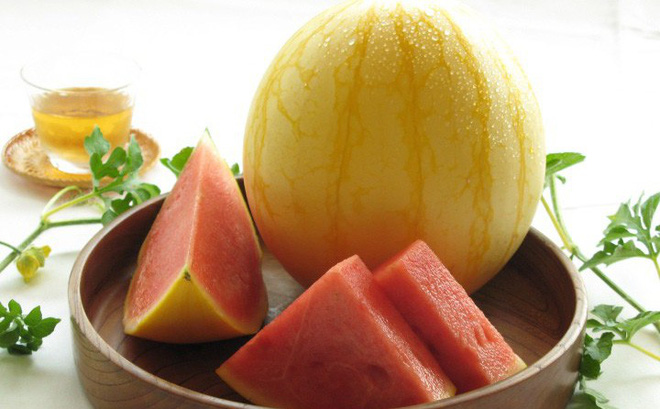 Photo: doanhnghiepvathuonghieu.vn
Photo: doanhnghiepvathuonghieu.vn
Tiny Watermelon: Known as Cucumber Watermelon (Dưa Hấu Chuột), this type belongs to the gourd family and has light green flesh that is crunchy like cucumber and mildly sour.
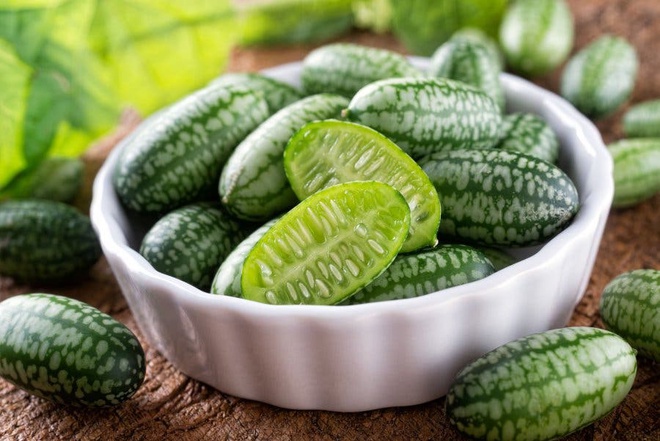 Photo: zingnew.vn
Photo: zingnew.vn
Cream Fleshed Suika: This unique type has white flesh and is favored for its creamy texture and slightly sweet flavor. Cream Fleshed Suika is known for being quite expensive.
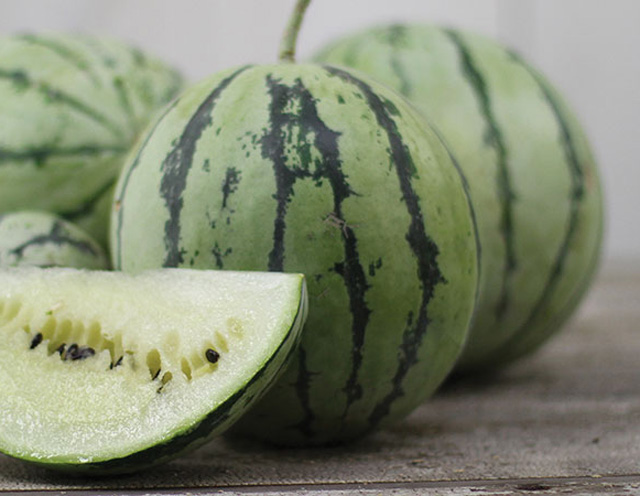 Photo: danviet.vn
Photo: danviet.vn
Pepino Watermelon: Also referred to as yellow striped melon, this variety is a hybrid between a watermelon and a pear melon.
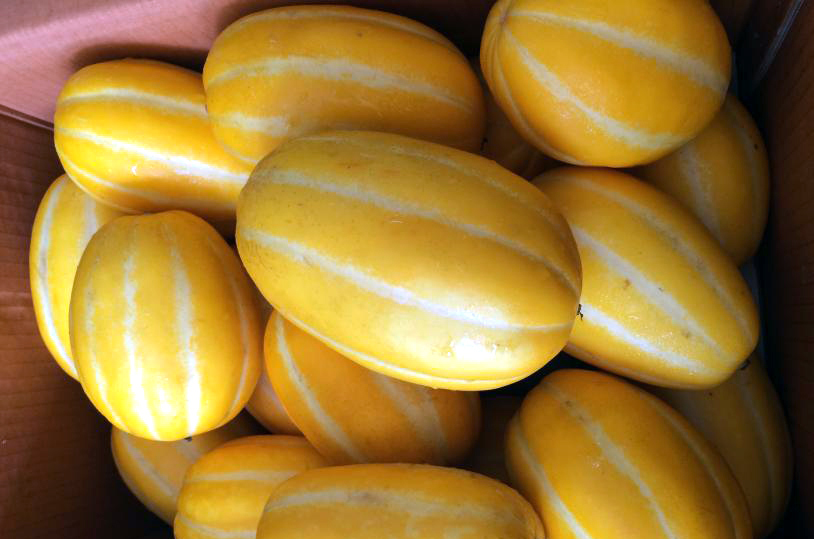 Photo: vietnamnet.vn
Photo: vietnamnet.vn
How to Eat
Watermelon can be daunting to eat due to its size and thick rind. To enjoy it, one must first cut the melon into quarters with a sharp knife, then slice each section into smaller pieces. Carefully separate the flesh from the rind, arrange it on a plate, and savor this revitalizing summer fruit.
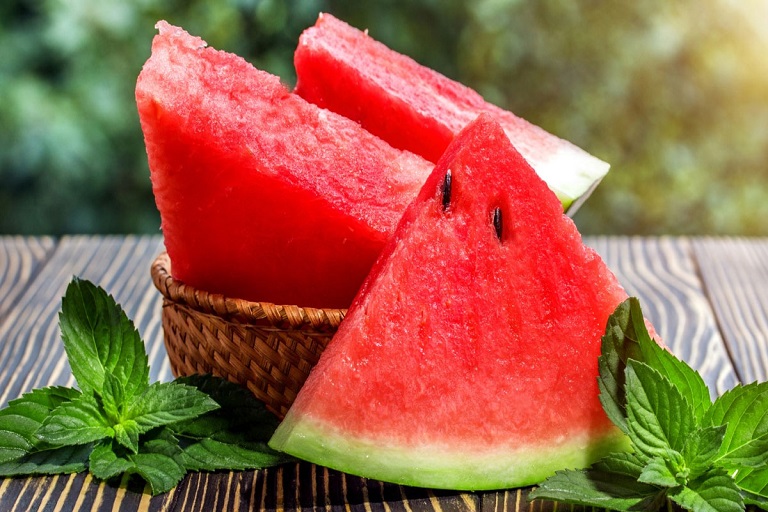 Photo: thuoccdantoc.org
Photo: thuoccdantoc.org
Where Watermelons Are Grown In Vietnam
As a quintessential summertime fruit, watermelon thrives in hot, dry weather, making the southern regions of Vietnam ideal for cultivation. Watermelon gardens can be found abundantly in areas such as Đồng Nai, Bến Tre, Long An, and Tiền Giang. However, this crop can be grown successfully throughout the country due to its adaptability to various tropical climates.
Benefits of Watermelon
Rich in water content, vitamins, and minerals, watermelon is particularly beneficial for hydration during hot summer days. Regular consumption can alleviate symptoms of dehydration following physical activity, help reduce cramps, and combat dizziness. Watermelon is also a source of lycopene, offering cardiovascular benefits and contributing to lower risks of stroke and high blood pressure.
Food Made From Watermelon
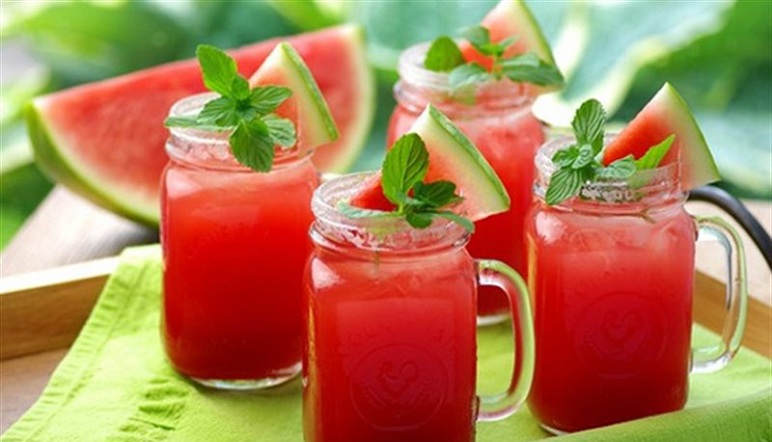 Photo: vietgiaitri.com
Photo: vietgiaitri.com
As summer approaches, refreshing beverages become essential for hydration, with watermelon serving as a popular ingredient. It can be incorporated into delicious drinks like watermelon juice and smoothies. Additionally, watermelon is combined with traditional medicinal herbs such as honeysuckle and chrysanthemum to create revitalizing tonics that cool down the body and replenish lost fluids during the heat.
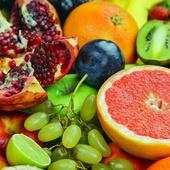
Vietnamese Fruits - An Overview
Being geographically located in the tropical zone, Vietnam is truly a heaven when it comes to fruits.
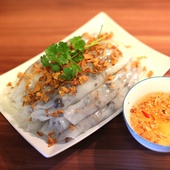
Vietnamese Cakes - A Closer Look At Vietnam's Most Varied Food
An overview to the different types of cake in Vietnam.
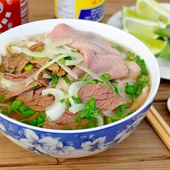
Vietnamese Noodles - An Overview
An introduction to Vietnamese noodles.



